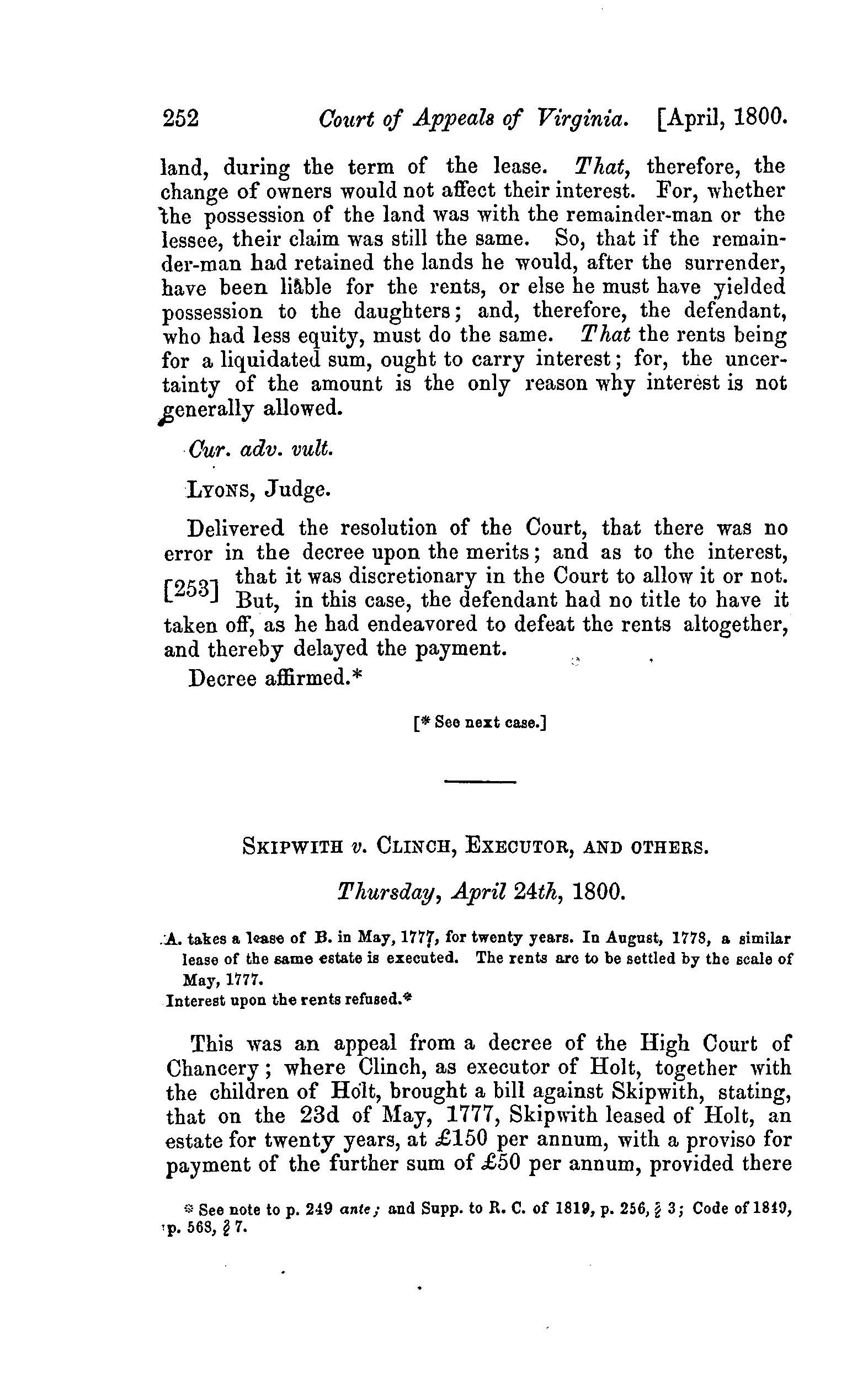Skipwith v. Clinch

In Skipwith v. Clinch, 6 Va. (2 Call) 213 (1800),[1] the parties executed two similar leases about a year apart. In this case, the Court determined which lease controlled the starting date to which the plaintiffs were entitled back rent.
Background
On May 23, 1777, Skipwith leased Holt’s estate for 20 years at £150 per year. The contract also contained a provision increasing payment by £50 provided there was peace between Britain and the United States. On August 31, 1778, another lease was created between the parties that was similar to the first. The only reason the parties agreed to the second lease was because the first was not recorded. During the first year, Skipwith paid his rent in paper money. However, when Skipwith attempted to pay rent the following years, the Holt family would not accept it because they believed the rent was to be paid in specie. After Skipwith's continuous failure to pay, Clinch, the executor of Holt and his children, sued in the High Court of Chancery. Clinch claimed that although the original deed had since been lost, the Holt family was still entitled to back rent as determined by the provisions of the contract. Clinch argued that while the parties created the second lease, both knew that rent was to be paid in specie, not paper money, and requested the court grant relief.
The Court's Decision
Chancellor Wythe was of the opinion that arrears should be awarded to Clinch. He also believed the amount of arrears should date back to creation of the first lease and not just the one recorded to the court. Wythe found that the plaintiffs were also entitled to benefits under the latter lease and the Court should treat those entitlements as if they were executed during the first lease. Based on these views, Wythe decreed that Skipwith pay the plaintiffs £300 in arrears using current Virginia money. The Court of Appeals affirmed the decree.
See also
References
- ↑ Daniel Call, Reports of Cases Argued and Adjudged in the Court of Appeals in Virginia, 3rd ed., ed. Lucian Minor (Richmond, VA: A. Morris, 1854), 2:213. George Wythe owned the first edition of this set.